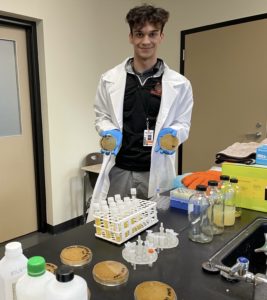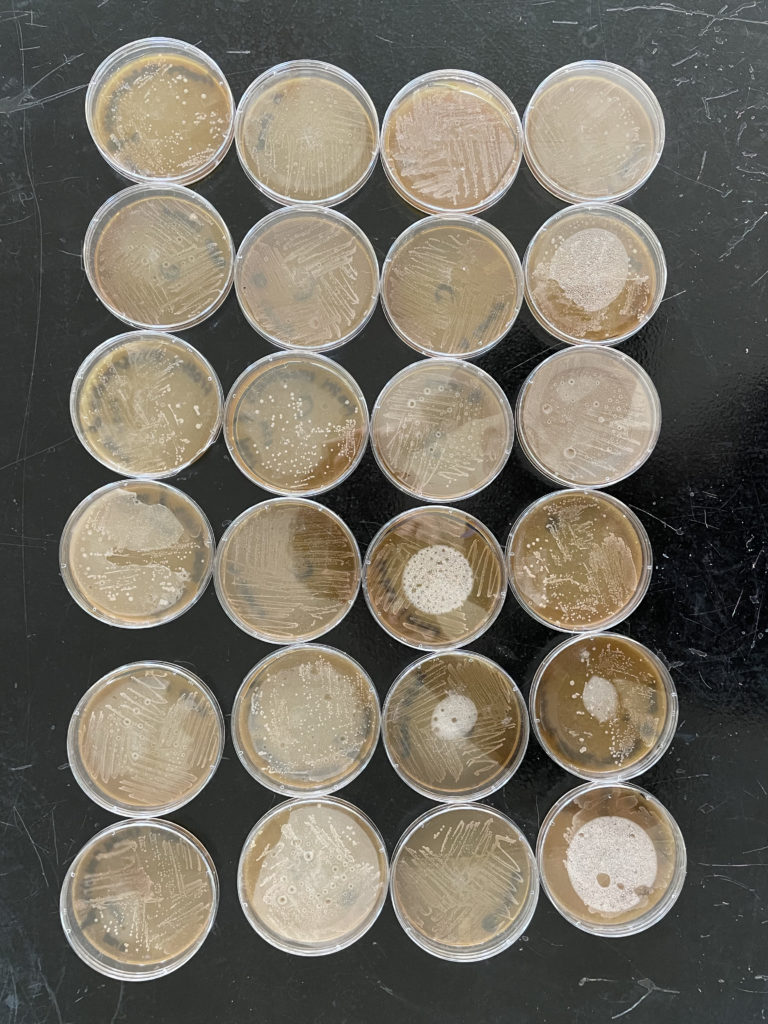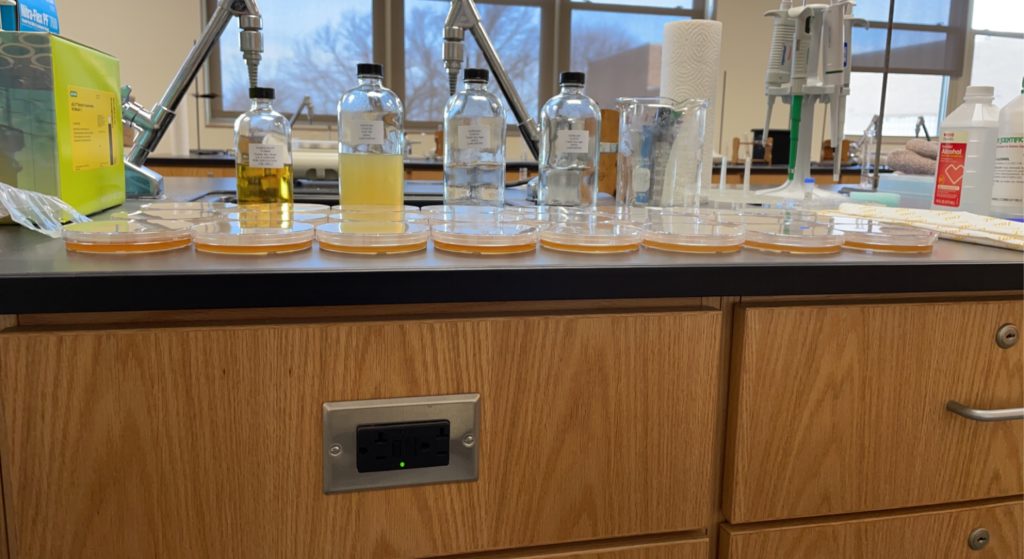 MedTrack senior Benjamin Frostino ’22 has been conducting experiments with Mrs. Kathy Craider of the Padua Science faculty to understand the CRISPR-Cas 9 defense system. The CRISPR-Cas 9 discovery is at the forefront of disease research and was awarded the Nobel Prize for Chemistry in 2020.
MedTrack senior Benjamin Frostino ’22 has been conducting experiments with Mrs. Kathy Craider of the Padua Science faculty to understand the CRISPR-Cas 9 defense system. The CRISPR-Cas 9 discovery is at the forefront of disease research and was awarded the Nobel Prize for Chemistry in 2020.
Two of the simplest organisms to study and manipulate as part of CRISPR are Staphylococcus epidermidis, the bacteria which causes a staph skin infection, and Andhra phage, a stable virus that attacks staph but is not harmful to humans. Frostino grew cultures of three different staph strains after he genetically modified them to resist the Andhra virus. He then placed them in an agar mixture on petri dishes and introduced the virus. This week, Frostino was rewarded with positive results, meaning the modified staph strains resisted the virus, which was the objective of the experiment. This is the first step in his ongoing research project to find ways to stem the targeted protein degradation in the brain of Alzheimer’s patients.
Click here to learn more about our MedTrack program.

